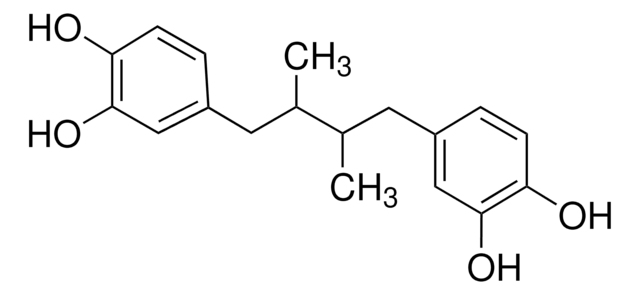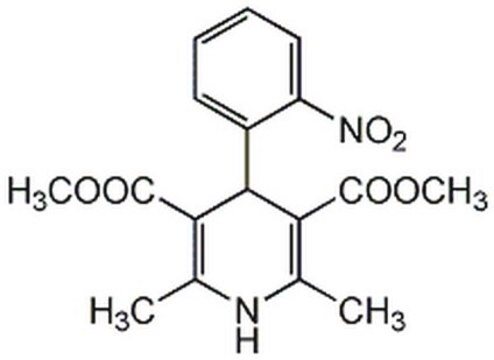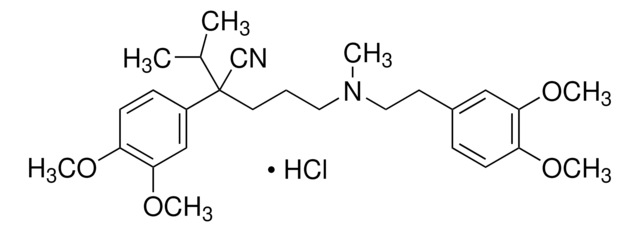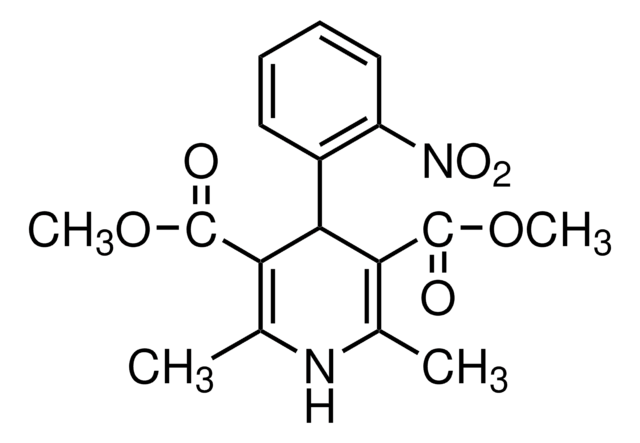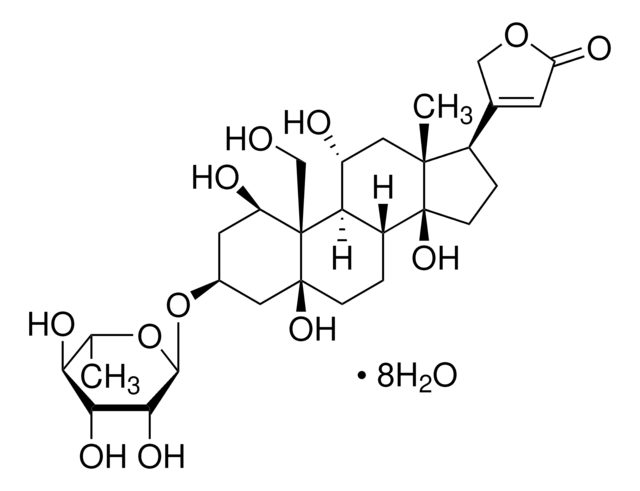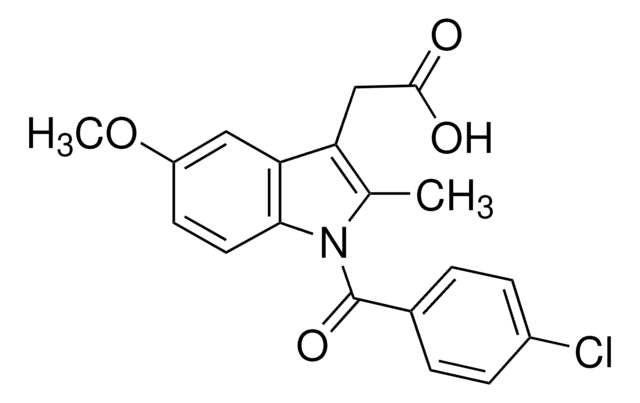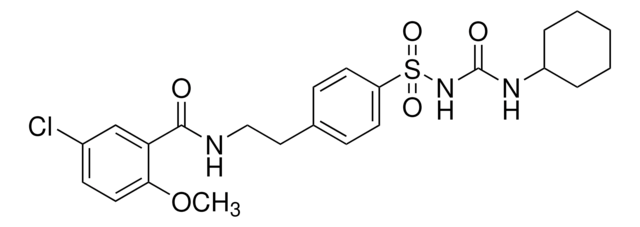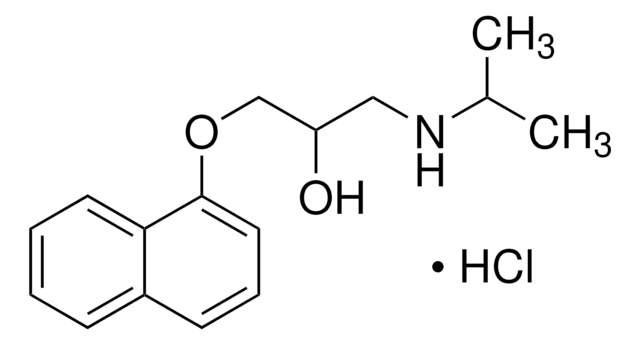N7634
Nifedipine
≥98% (HPLC), powder
Synonym(s):
1,4-Dihydro-2,6-dimethyl-4-(2-nitrophenyl)-3,5-pyridinedicarboxylic acid dimethyl ester
About This Item
Recommended Products
Quality Level
Assay
≥98% (HPLC)
form
powder
color
yellow
solubility
DMSO: soluble
ethanol: soluble
originator
Bayer
storage temp.
2-8°C
SMILES string
COC(=O)C1=C(C)NC(C)=C(C1c2ccccc2[N+]([O-])=O)C(=O)OC
InChI
1S/C17H18N2O6/c1-9-13(16(20)24-3)15(14(10(2)18-9)17(21)25-4)11-7-5-6-8-12(11)19(22)23/h5-8,15,18H,1-4H3
InChI key
HYIMSNHJOBLJNT-UHFFFAOYSA-N
Gene Information
human ... ADORA2A(135) , ADORA3(140) , CACNA1C(775) , CACNA1D(776) , CACNA1F(778) , CACNA1S(779) , CACNA2D1(781) , CYP1A2(1544) , KCNH1(3756) , TTR(7276)
mouse ... Cacna1c(12288)
rat ... Adora1(29290) , Adora2a(25369) , Cacna1c(24239) , Cacna1d(29716) , Kcnj1(24521) , Kcnn4(65206) , Tbxas1(24886)
Looking for similar products? Visit Product Comparison Guide
Application
- to evaluate its effect on myenteric neuronal calcium current through R-type calcium channel in guinea pig small intestine
- to evaluate the neuroprotective effect of L-type calcium channel blockers in cholinergic and dopaminergic neurons
- to identify the effect of co-administration of nifedipine (anti-hypertensive drug) along with hypoglycemic drug on human umbilical vein cells (HUVECs)
Biochem/physiol Actions
Features and Benefits
Signal Word
Warning
Hazard Statements
Precautionary Statements
Hazard Classifications
Acute Tox. 4 Oral
Storage Class Code
11 - Combustible Solids
WGK
WGK 1
Flash Point(F)
Not applicable
Flash Point(C)
Not applicable
Personal Protective Equipment
Certificates of Analysis (COA)
Search for Certificates of Analysis (COA) by entering the products Lot/Batch Number. Lot and Batch Numbers can be found on a product’s label following the words ‘Lot’ or ‘Batch’.
Already Own This Product?
Find documentation for the products that you have recently purchased in the Document Library.
Our team of scientists has experience in all areas of research including Life Science, Material Science, Chemical Synthesis, Chromatography, Analytical and many others.
Contact Technical Service